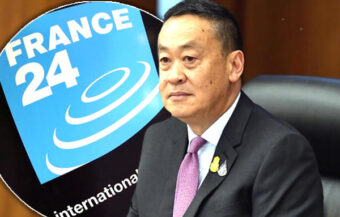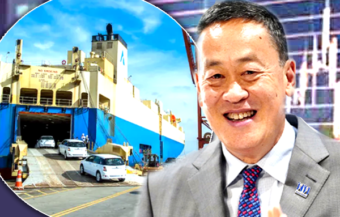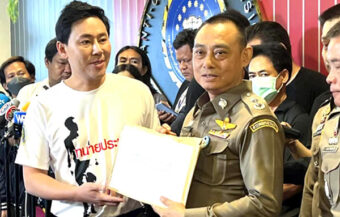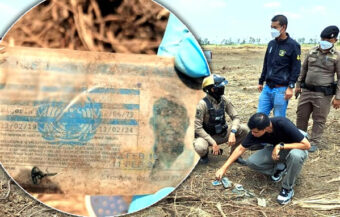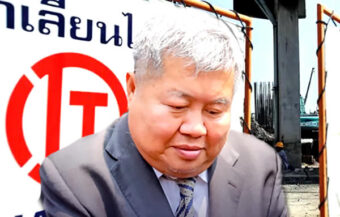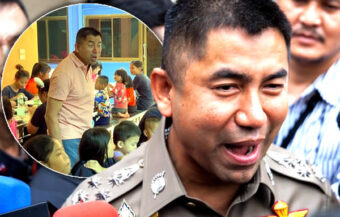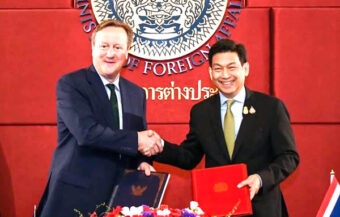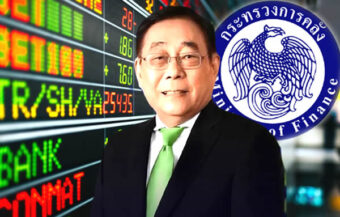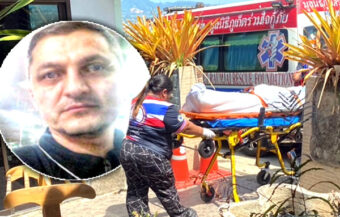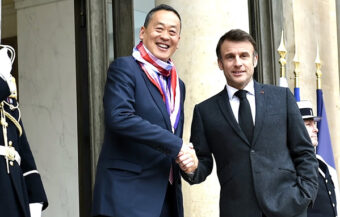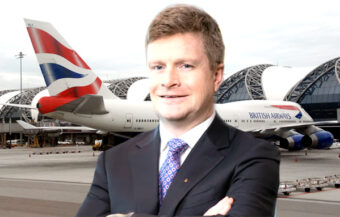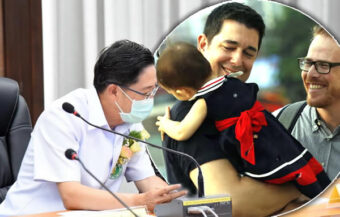Facing a projected record turnout in the March 24th election, there can be no doubt that the Thai public is enthusiastic. As well as 96% saying they will vote, 70% say they feel their vote will count. For the military junta and the political parties supporting the candidacy of current Prime Minister, Prayuth Chan ocha, there is some hope given the constitutional advantage and reports that the pro junta Palang Pracharat Party, is beginning to gain traction. But this could also be due to the emergence of a new fault line in the election between pro junta and anti junta factions. Thailand may be moving away from color coded red and yellow shirt factions. If so, any election success for the radical, progressive Future Forward Party and its firebrand young leader, Thanathorn Juangroongruangkit who is radically opposed to the dominant role of the Thai military and junta in Thailand, could decidedly be the worst possible outcome for the establishment. Another key question is whether the emerging profile of the Future Forward Party is an electoral mirage or will it ultimately translate into seats and power in Thailand’s lower house in Parliament?
He is the son of one of the Thailand’s and indeed one of the world’s richest women with a fortune estimated by Forbes at $1.2 billion. Yet he advocates a new state affairs in Thailand which would see the country embrace progressive left wing policies to drastically reduce the gap between the rich and the poor. He is also calling for a complete reform of the Thai army, targeting half the officer corps as well as insisting the those who participated in past coups are brought to justice. It would be true to say that any success for Thanathorn Juangroongruangkit and his Future Forward Party in the March 24th election would represent the worst possible outcome for the current government, military junta and current Thai Prime Minister, Prayuth Chan ocha.
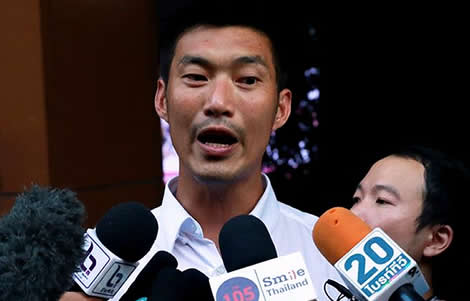
The Thai general election is unlikely to result in the smooth formation of a new government when he new Thai parliament meets at the end of May or beginning of June. The new party and voice that has emerged out of this election so far, is that of Thanathorn Juangroongruangkit and his radical Future Forward Party. The young leader wants to redraw the lines in Thai politics and introduce Thailand to the student politics that has dominated Europe since 1968. Many foreigners, living in western countries today, consider these policies to be at the root of the political failure of Europe in recent years and indeed many of the world’s problems. Many on the other hand, among the young, academics and the left consider them as the ideal and the modern way forward for the world.
Thai army has been a bulwark for decades against left wing policies ever since the fight against communism
In Thailand, these policies have not taken hold because of the intervention and opposition of the Thai military to both communism and the left wing agenda in the 1960s and 1970s. Thailand, in this election, is facing a choice between order and instability, or a traditional society versus a progressive one. For many on the growing right wing side of western politics, Thailand has been fortunate to have avoided much of the left wing agenda. Thailand is a nation that still holds its own culture and exercises full control of its destiny while reaping the economic benefits of an open free trading, market driven economy. For some foreigners moving to live in Thailand from western countries, this old fashioned culture is what attracts them to the kingdom in the first place. More foreigners, including many in Thailand who work for NGOs, would like to see Thailand ‘progress’ further along western lines. Thanathorn is advocating the progressive agenda of the ‘Left’ and is supported by many people both within and without Thailand who want to see the country embrace these values.
Thanathorn is western educated and already a successful business operator in the real world
The outspoken billionaire candidate who has made such waves in this Thai general election campaign is the son of a wealthy Thai business man whose mantle he reluctantly took on after his billionaire father passed away and his mother asked him to take up a pivitol role in the family business as an executive vice president. Despite this, he has revealed that his greatest wish is to be of service to the Thai people and the public. In the recently published Forbes rich list, Somporn Juangroongruangkit, Thanathorn’s mother, is ranked as one of the richest women in the world with a fortune of $1.2 billion. She is the President of the giant auto parts company Thai Summit Group. As well as being highly educated with a western university degree, the young man is a proven business veteran which would be highly unusual for a young politician in western countries. It is something that counts in Thailand among people at all levels, where business people are more respected.
Future Forward leader is confronting the Thai military openly and determined to end the tradition of coups in the country and curb the military
Amazingly, the young man is running on a radical left of centre political platform that calls for Thailand to abandon the special position or power of the army in Thai society and Thai politics. He is determined, above all, for an end to Thailand’s long tradition of military coups. Startlingly for many in military hierarchy, the young firebrand has held to his conviction and call for all those involved in the 2014 coup as well as all other coups to face prosecution. His party, which was co founded with Piyabutr Saengkanokkul of Thammasat University, a highly respected Thai university, is calling for a replacement or rewriting of Thailand new constitution. This was approved by the Thai people in 2016 in a plebiscite and officially came into force in 2017.
The new party’s platform harks back to the student politics of the 1970s in Thailand
His position has put him at loggerheads with the Thai army which has long maintained a steadfast stance against socialist policies dating back to its ardent opposition to communists and in the 1960s and 1970s, radical student politics. Some of Thanathorn’s comments during the general election have suggested that he wishes to redraw the line in Thai politics away from red and yellow shirt politics and back towards the policies and platforms advocated by students and university activists of the past and present, who have called for a more progressive social and economic agenda in Thailand and specifically that the power and influence of the Thai military be checked. For many in Thailand, on the other hand, the military is seen as an instrument that guarantees stability. They see it as an essential part of the tradition of the country.
Party has made a big impact particularly among youth since it was founded only 1 year ago
The party was founded only in 2018 by Thanathorn Juangroongruangkit and Piyabutr Saengkanokkul. Mr Saengkanokkul is a respected thinker and influential academic at Thammasat University where he is a law professor. The professor is a member of the well known Nitarat group of legal thinkers in Thai universities who oppose the Thai military and want to see Thailand pursue a more progressive agenda. This would be easy enough for many people in western countries to understand although in recent years western academia has become even more radical and vociferous.
A progressive threat to traditional Thai values and establishment that is engaging graduates and students in a more worldly Thailand
For many traditionalists in Thailand and among the Thai army corps, such thinking is a threat to Thailand’s traditional values. Thailand has, up to now, been a very conservative country perhaps more than in any country in the world because of the influence and strength of its culture which is deeply rooted and embedded in Thai society and supported by large swathes of people. However, the growing number of young Thai people attending university and working young graduates today, means that such progressive views are taking hold more so than in the past.
Junta installed government has also tried to be modern and progressive since coming to power
It is also important to note that there are some voices even within the present government, installed by the military junta in 2014, who want to see Thailand’s modernise. The junta’s pursuit of legal cannabis for medical use and the the ambitious Thailand 4.0 technology program all show forward thinking. On the other hand, the former ruling Pheu Thai party has many within its ranks who are deeply traditional but it favors the dynamic, wheeling and dealing private enterprise model advocated by ex Premier Thaksin Shinawatra augmented by some state supports for those at the bottom of society. Indeed, it would be true to say that both the red shirts and yellow shirt factions that have up to now dominated Thai politics, are equally traditional and conservative in their thinking when it comes to social issues.
Former Prime Minister Thaksin Shinawatra still a factor in Thai politics after over 20 years
The fault lines are both regional and personal. Amazingly, the key political divisions have centered on one man who has dominated Thai politics for over 20 years even though for half that period or more, he has been living in exile. That man is Thaksin Shinawatra. Thanathorn Juangroongruangkit and the Future Forward Party represent a departure from this era in Thai politics and a re engagement with the political battles of the 1970s where the fault line becomes simply right versus left, traditional values or a progressive agenda.
Young leader wants to introduce serious reform of Thailand’s army and its power base
Thanathorn Juangroongruangkit and his Future Forward Party have made it clear that tackling the influence of the Thai military and working to hold those account for the 2014 coup and all other coups is a key priority. The aspiration to make sure there are no furthehr military coups in Thailand. The party has plans to drastically cut down the number of military generals in the kingdom which currently stands at 1,400. Thanathorn has also expressed a proposal to cut the the number of officers in the Thai military from 400,000 down to half that figure. He has also suggested the involvement of the International Criminal Court (ICC) in Thailand’s affairs as a way to counter the power of the military and their ability to conduct a coup d’etat with impunity.
Virulently opposed to the Thai constitution even though it was approved by the Thai public in 2016
He is also fighting against the 2017 constitution which effectively embeds the Thai military into Thai political affairs in many ways overtly but others by implication. The new constitution for instance was designed to limit the power of large political parties and combat corruption. One key provision is the need for Thai governments to adhere to long term policies or to protect against populist measures. This gives the military an oversight role which is embodied for now in the upper house or senate but also it encourages this thinking. Thanathorn Juangroongruangkit is pulling in exactly the opposite direction. There have been no fewer than 12 successful coups (19 including failed attempts) since Thailand’s became a constitutional monarchy in 1932. You could also describe the new constitution as a legal basis to ensure there are no further coups as it provides the legal basis to remove governments and dissolve political parties without the intervention of the army.
Current Thai army chief has come out to fiercely defend the Thai army and military
Both the Pheu Thai and the Future Forward Party have clashed with the military directly during this campaign. This has drawn the ire of the chief of the Thai army, General Apirat Kongsompong, who at one point during the campaign ordered the military’s popular anti communist anthem to be played at all military establishments and radio stations. The military has also come out defending its budget and its unique role in preserving Thailand’s stability and independence. It maintains that military conscription, which has come a political issue in recent years and been taken up by the opposition parties, is fundamentally necessary to Thailand’s security and stability. It is a more credible message today than before given the effect liberal and progressive politics are having a western countries which are currently experiencing a political crisis over international immigration, population replacement, free speech and religious tolerance.
Young Thai people are listening to the Future Forward message as western influence in Thailand grows due mainly to media and the internet
However, to many young Thai people, the Future Forward Party message and platform is what it says on the tin, the way of the future and a forward direction to a fairer society. It chimes with an emerging movement of young, idealistic people in western countries even in the United States. This is happening as young Thai people soak up western culture and influence through the internet. The question is how far down the road will Thanathorn and his political movement get after the general election results are announced. His party is fielding candidates in all constituencies but some observers suggest his party lacks traditional support of the voters at constituency level.
Biggest single threat to current establishment
Some political commentators suggest that, because of this, its vote in the opinion polls may fail to translate into seats in parliament. On the other hand, the enthusiasm among Thailand’s youth and it must be said, among young people working in the Thai media may be a precursor to an unwelcome surprise for Thailand’s junta and military. Either way, Thanathorn Juangroongruangkit has emerged as potentially one of the biggest threat to the current establishment. He is also awaiting a decision by Thai prosecuting authorities on whether to take legal action him and others under the Computer Crime Act over a Facebook broadcast last year. This is due some two days after the general election takes place.
Similarities with French President’s En Marche movement in 2017 with new political faces
The Future Forward Party is very similar to French President Emmanuel Macron’s En Marche party in the 2017 French Presidential election in that is fielding a complete new range of candidates who have never sought election before. The vociferous Future Forward leader had compared the old patronage voting system and traditional support to the mafia dons of Sicilian legend and promises a new kind of politics in Thailand. Yet, a Thai opinion poll this week showed that the individual candidates known to voters in a constituency is the decisive factor for the largest number of the Thai electorate. Party policies emerged as fourth priority on the list.
Thailand heading for huge voter turnout in the long awaited March 24th general election
The same poll, conducted up to March 10th, by the King Prajadhipok’s Institute (KPI) showed a breathtaking 96% of Thai people intend to vote with up to 70% feeling the vote will count. This indicates some support for the current constitution. However, the dogged loyalty of Thai voters to the former ruling Pheu Thai Party and a range of opinion polls suggest that there is a strong demand for a return to representative democracy. The impressive showing of the Future Forward Party is also testimony to this. This week it emerged that a former Thai Raka Chart Pary candidate in Chachoengsao province, east of Bangkok, had joined the campaign trail in favor of the local Future Forward Party candidate in the constituency she had been running in before that party was dissolved.
Thai Raksa Chart Party disbandment may be helping Future Forward attract more support
Thak Raksa Chart was disbanded by the Thai Constitutional court last week after nominating a Thai Princess as its candidate for prime minister in February. It has been widely thought that this party was working with Pheu Thai and indeed Pheu Thai had failed to field candidates in many Bangkok constituencies and over 100 throughout to Thailand reportedly as a matter of election strategy. The move to support the Future Forward Party by a former Thai Raksa Chart candidate shows that there is a division emerging between pro junta parties and those opposed to the junta. This could benefit Future Forward as Thai people make up their minds. The canny leader of the Democrat Party and former Thai Prime Minister, Abhisit Vejjajiva, this week surprised many on the junta side of the divide when he openly stated that his party would oppose the candidacy of incumbent Premier Prayuth Chan ocha in the next parliament.
Veteran political observers say party will fail to gain seats. Are they right or out of touch?
Season political observers in Thailand continue to write off the prospects of the Future Forward Party at constituency level. Many veteran observers feel that the party doesn’t have the base to take the seats in the constituencies. Is this political pragmatism or are they out of touch with a new electorate? This will be decisive in the election. The last opinion poll gave the party nationwide something like 8% support. However, other polls showed it polling like close to 40% in Bangkok and well over 20% of Thailand’s northern rural hinterland. A poll just released this week shows the pro junta Palang Pracharat Party coming back into the race. It has many seasoned candidates of its own who have, for the past weeks, been pounding the streets in Thailand. The Pheu Thai party remains in the lead however.
There is no doubt that the Future Forward Party represents the antithesis of the the ruling philosophy being pursued by the military junta. A breakthrough for it would represent a direct challenge to the order of things since 2014 and the premiership of Prayuth Chan ocha.
Higher taxes on the rich, cuts in military spending and more social welfare expenditure
Thanathorn’s progressive policies call for deeper levels of social welfare and health care, moving Thailand to a European style democracy and welfare state. Obviously, this will take time and cost money. Thanathorn says they will find it through higher taxation of Thailand’s rich and a reduction in the military budget. He cites a plan to reform and streamline the military doing away with ฿60 billion which he says should be spent on the people of Thailand. He sees a possible ฿200 billion further in additional taxes being achieved by abolishing ‘tax privilege schemes’ and improving tax collection. He promises the effective rate of tax for lower earners will not rise.
Thanathorn quoted a Credit Suisse Bank report as showing that Thailand is now the world’s most unequal country. It was in a video interview with a Bangkok Post reporter. This reports has also recently been quoted on other international news reports and accepted as fact. However, in December 2018, the Thai government through its spokesman, pointed out that the report was flawed and relied on inaccurate data.
Credit Suisse report questioned by Thai government in December who said it used old 2006 data and Thailand is becoming a more equal country
Putthipong Punnakan, the spokesman for the Thai government in December referred to it as ‘inaccurate, incomplete and unreliable’ and claimed that Thai officials had examined the report to reach this conclusion. He pointed out that the report used data from both the World Bank and the IMF (International Monetary Fund) which was over twelve years old and published in 2006 to reach its conclusions. The facts on the ground in Thailand were the complete opposite, the Thai government insisted. The government spokesman pointed that from 2006 to 2017 the multiple of wealth held by the super rich compared to the poor in Thailand had fallen from a multiple of 29.92 to 19.29. Obviously, there is still work to do but the current government has been targeting inequality and policies to assist the less well off have been a key priority. The problem for the Thai government, as the election approaches, is that farm prices have slumped and this is hitting home to Thai people in the last few months. As much as 45% of Thai people still live on the land and even those who have moved to urban centers are still connected with families and the soil
However, successive Thai governments since the 1980s can take deserved credit for consistently reducing chronic poverty in Thailand. It has declined by well over 80% from that era which is a considerable achievement. That trend continues downward at an even faster pace. Thailand has the lowest unemployment rate in the world at less than 1%.
Future Forward calls for more property tax
Meanwhile, Thanathorn is calling for a tax on land and homes in Thailand. It is a move that might appeal to the less well off but in Thailand the percentage of people owning land or property is somewhat higher than European countries. The Future Forward leader has constantly said that he wants to move away from the red and yellow political divide in Thailand. He is seeking, in effect, to resurrect the fault lines of the 1970s and this will put him, inevitably, on a collision course with traditionalists and the Thai army. The question is, has Thailand changed so fundamentally? The immediate days after election will tell us something of that.
Up to 70% of Thai people fear political instability after the election if senate sways PM vote
There is a feeling that Thailand is facing instability of some sort after the election results emerge and efforts get underway to elect a new Prime Minister. A Suan Dusit poll earlier this year showed up to 70% of the Thai public feel this will be the case. The established parties, including the former ruling Pheu Thai Party which will do well and Thailand’s oldest party the Democrat Party which has also had a good election campaign will emerge as a key player. The fact that both these parties are still vehemently opposed to the 2017 constitution is worrisome for the military junta and the junta’s political supporters. The use of the upper house or Thai senate to elect a Prime Minister who does not command a majority in the lower house will be the key source of contention.
New Thai constitution different from other charters as it embeds military’s role
The extent that the military junta can command support in the lower house will be critical. If the Future Forward Party were to emerge as a surprising new political power after the election, it will make the problem for the military junta more acute. It must be remembered that the 2017 constitution was approved by a vote of the Thai people. It is quite different from previous charters. It steers Thailand on a political journey where longer term stability and order are favored ahead of democracy and democratic suffrage. On one hand, supporters of democracy will cry foul but on the other, supporters of the junta will say it is a necessary protection against uncontrolled populism. This latter message will be more readily understood in Europe in 2019 more than it would have been in 2014 after the events since 2016 from which Europe is still reeling politically.
The main political parties, it appears have decided to fight the election first and take on the constitution second. The battle to elect Thailand’s next Prime Minister may soon descend into this one. It is a matter and debate for the Thai people and nation to work out. It can only be hoped that some consensus or accommodation emerges because no one wants a return to the street protests of 2013 and 2014 or even 2010 when lives were lost or another coup.
40 year old Thai billionaire and emerging election winner may face prosecution for Facebook post
Thailand’s long week in politics still points to a strong opposition performance in the election



